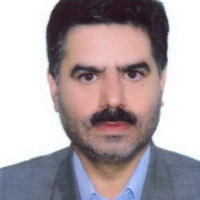Bushehr Nuclear Power Plant from an International Economic Perspective

The initial agreement between Iran and Russia was over an 800-million-dollar contract. However, so far Iran has paid more than one billion dollars for completion of Bushehr nuclear facility. A group of experts claim that its prolonged construction process has brought significant financial loss to Iran. And with substitution of the nuclear technology from Western to Russian the question raised is that were all these expenses worthy politically speaking.
Comment by Morteza Abutalebi, international economy expert for Iranian Diplomacy:
Before relaying Bushehr project to Russians, Iran had made expenditures for Bushehr power plant’s infrastructures. Naturally it was better to continue the investment on those infrastructures and not to quit the project. However, in such projects, we shouldn’t merely look from an economic perspective, i.e. cost and benefit. International political economy should also be taken into account, so cost and benefit should be analyzed from an international political economy point of view.
Looking from this point of view, gaining access to advanced technologies for a country like Iran, which faces sanctions and hostility, is vital. We should also know that with Bushehr power plant fully constructed, Iran has gained access to nuclear electricity. So we should look at the benefits of this project and not only its costly construction history. From now on, Iran can generate megawatts of electricity with lower cost.
As an oil-and-gas-rich country, with generation of nuclear electricity Iran can make better uses of its oil and gas resources. The world knows that compared with other types of energy, nuclear energy is cleaner and more useful in electricity generation.
On the other hand, access to nuclear fuel means diversifying means of energy production. Iran is a developing country that will definitely need more resources of energy, especially electricity resources. Diversifying these resources is politically, strategically and economically crucial for us.
Also, when Iran acquires the know-how of power plant construction and management, it has in fact paved the way for building more local nuclear power plants. This will decrease Iran’s technological dependence on other countries and implies domestic and international export. Iran has plans to generate 20 thousand megawatts of nuclear electricity in the upcoming years which requires constructing 20 other nuclear power plants at the scale of Bushehr power plant. Besides, achieving the construction and management know-how provides a chance for Iran to import nuclear technology as a part of technological and engineering services to other countries, which is a lucrative trade.
All issues mentioned above, are benefits to be gained in near future after years of profuse spending on Bushehr nuclear facility. Large-scale, national projects such as Bushehr power plant shouldn’t be viewed from a cost and benefit perspective, but within an international political economy framework. Heavy expenses are not a concern if covered by future profits.
By Morteza Abutalebi

